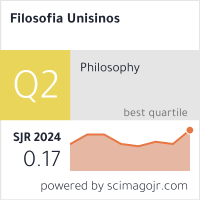Athens “is Dieting”. The relationship between “gastronomy” (opsopoietike) and politics in Plato’s philosophy
DOI:
https://doi.org/10.4013/fsu.2021.222.05Resumen
This paper addresses the question of the relationship between the diaita, that is, the psychophysical conditions related to nutrition, and the political regime that it generates in Plato’s philosophy. It will be argued that the reasons that stimulate Plato’s critique to the dietary nomos, that emerge in the V-IV BC centuries following the development of the culinary technique, are especially political reasons. Our purpose is to find the relationship between a food habit and a government’s pattern. In order to attain the aim, the article is divided into the following parts: First, we argue about Plato’s interest in foods and the effects that food has on individual and on political health; Then we examine the Plato’s judgment about the new habits and their social influences; Finally, we analyse the relationship between diaita and politics in the Republic and Laws.
Keywords: Plato, diaita, politics, nomos.
Descargas
Métricas
Descargas
Publicado
Cómo citar
Número
Sección
Licencia
Derechos de autor 2021 Filosofia Unisinos

Esta obra está bajo una licencia internacional Creative Commons Atribución 4.0.
Concedo a revista Filosofia Unisinos – Unisinos Journal of Philosophy o direito de primeira publicação da versão revisada do meu artigo, licenciado sob a Licença Creative Commons Attribution 4.0 (que permite o compartilhamento do trabalho com reconhecimento da autoria e publicação inicial nesta revista).
Afirmo ainda que meu artigo não está sendo submetido a outra publicação e não foi publicado na íntegra em outro periódico e assumo total responsabilidade por sua originalidade, podendo incidir sobre mim eventuais encargos decorrentes de reivindicação, por parte de terceiros, em relação à autoria do mesmo.











